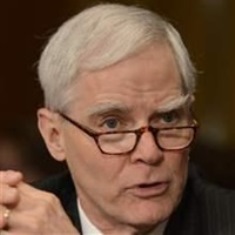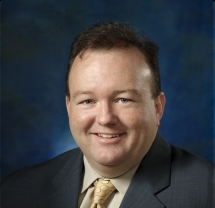During this event 10 mentees will have the opportunity to meet with 10 different mentors for 5-10 minutes each. After the speed mentoring, the group will have the opportunity to connect further over a lunch plenary.
A complete list of experienced mentors and their policy area(s) of expertise may be found below:
Professor, University of Connecticut Department of Economics, Editor-in-Chief, JPAM
Ken Couch is the current Editor-in-Chief of the Journal of Policy Analysis and Management and a Professor at the University of Connecticut. His research interests broadly encompass the analysis of changing social programs, social conditions and related outcomes. Recent publications have considered impacts of welfare reform on health, longevity related reforms to the Social Security retirement benefit system, changes in marital structure and health outcomes, marital structure and retirement adequacy, and the impact of online education on learning of college students. His work has been published in leading journals in economics, public health, population studies, and aging.
 Sherry Glied
Sherry GliedDean, Professor of Public Service, New York University Wagner Graduate School of Public Service
Policy Area(s) of Expertise: Health Policy
In August 2013, Sherry Glied became Dean of New York University’s Robert F. Wagner Graduate School of Public Service. From 1989-2013, she was Professor of Health Policy and Management at Columbia University’s Mailman School of Public Health. She was Chair of the department from 1998-2009. On June 22, 2010, Glied was confirmed by the U.S. Senate as Assistant Secretary for Planning and Evaluation at the Department of Health and Human Services, and served in that capacity from July 2010 through August 2012. She had previously served as Senior Economist for health care and labor market policy on the President’s Council of Economic
Advisers in 1992-1993, under Presidents Bush and Clinton. Glied’s principal areas of research are in health policy reform and mental health care policy.
 Michael Gluck
Michael GluckSenior Director, Evidence Generation and Translation, AcademyHealth
Policy Area(s) of Expertise: Research Translation & Dissemination; Health Care Financing; Medicare; Science & Technology Policy
Michael E. Gluck, Ph.D., M.P.P. is a Senior Director at AcademyHealth, where he co-directs the organization’s Translation and Dissemination Institute and works with the Robert Wood Johnson Foundation’s Changes in Health Care Financing and Organization (HCFO) initiative. His principal areas of focus are health care financing, especially related to Medicare, improving the usefulness and use of evidence in policymaking, and public policies concerning biomedical research and medical technology.
Prior to joining AcademyHealth in 2009, he served as the first Director of the California Health Benefits Review Program (CHBRP). Dr. Gluck was also formerly the Director of Health Policy at the National Academy of Social Insurance and has held positions at the Congressional Office of Technology Assessment (OTA) and Georgetown University’s Health Policy Institute. He received his B.A. in history magna cum laude from Haverford College and M.P.P. and Ph.D. degrees in public policy from Harvard University.
Ron Haskins
Co-Director, Center on Children and Families, Senior Fellow, Economic Studies, Brookings Institution
Policy Area(s) of Expertise: Social, Family, and Child Policy
Prior to joining Brookings and Casey, he spent 14 years on the staff of the House Ways and Means Human Resources Subcommittee, first as welfare counsel to the Republican staff, then as the subcommittee’s staff director. From 1981-1985, he was a senior researcher at the Frank Porter Graham Child Development Center at the University of North Carolina, Chapel Hill. He also taught and lectured on history and education at UNC, Charlotte and developmental psychology at Duke University.
Haskins was the editor of the 1996, 1998, and 2000 editions of the Green Book, a 1600-page compendium of the nation’s social programs published by the House Ways and Means Committee that analyzes domestic policy issues including health care, poverty, and unemployment. Haskins is a senior editor of The Future of Children, a journal on policy issues that affect children and families. He has also co-edited several books, including Welfare Reform and Beyond: The Future of the Safety Net (2002), The New World of Welfare (2001) and Policies for America’s Public Schools: Teachers, Equity, and Indicators (Ablex, 1988), and is a contributor to numerous edited books and scholarly journals on children’s development and social policy issues. He is also the author of Show Me the Evidence (2014), Work Over Welfare: The Inside Story of the 1996 Welfare Reform Law (2006) and the co-author of Creating an Opportunity Society (2009) with Isabel Sawhill and Getting Ahead or Losing Ground: Economic Mobility in America (Pew, 2008). He has appeared frequently on radio and television and has written articles and editorials for several newspapers and periodicals including the Washington Post, New York Times, Wall Street Journal, Policy Review, State Government News, American Enterprise, National Review, and the Weekly Standard.
His areas of expertise include welfare reform, child care, child support, marriage, child protection, and budget and deficit issues. In 1997, Haskins was selected by the National Journal as one of the 100 most influential people in the federal government. He received a Lifetime Achievement Award from the Federal Office of Child Support Enforcement (2000); the President’s Award for Outstanding Contributions to the Field of Human Services from the American Public Human Services Association (2005); and the Lion Award from the Grantmakers for Children, Youth, and Families (2010).
He holds a Bachelor’s degree in History, a Master’s in Education, and a Ph.D. in Developmental Psychology, from UNC, Chapel Hill.
 Mark Long
Mark LongProfessor of Public Policy & Governance, Evans School of Public Policy & Governance, University of Washington
Policy Area(s) of Expertise: Economics; Education
Mark C. Long joined the Evans School faculty in 2004. Long is a professor of public policy and governance and adjunct professor of economics. He holds a Ph.D. and MA in Economics from the University of Michigan. He also holds an MPP from the University of Michigan, and a BA from DePauw University. He is affiliated with several centers including Scholars Strategy Network, West Coast Poverty Center, Center for Education Data & Research, and the Center for Studies in Demography and Ecology.
Long’s research examines the effects of public policies (particularly education policy) on economic opportunity and efficient social mobility, with emphasis on estimating the benefits and costs of those policies. His education-related research focuses on: (1) the effects of high school course-taking and school and college quality on test scores, educational attainment, labor market outcomes, and family formation and other behaviors; (2) the effects of college financial aid on college entry and household savings; (3) gender disparities in educational attainment; and (4) the effects of affirmative action and alternative college admissions policies on college entry. His other research focuses on: (1) the impact of Seattle's minimum wage law; (2) the savings and labor supply responses to complex policy incentives; (3) the effects of altruism on the value of life for use in benefit-cost analysis; and (4) heterogeneity in citizen's preferred social discount rates for use in benefit-cost analysis. He has previously worked on the economics of nursing labor markets and manufacturing firms’ wage and productivity dynamics. Long previously served on the faculty of George Washington University as an assistant professor of economics and public policy and administration from 2002-04. He has publications in numerous journals including The Review of Economics and Statistics, Journal of Public Economics, Journal of Econometrics, Journal of Policy Analysis and Management, Public Administration Review, American Educational Research Journal, Educational Evaluation and Policy Analysis, and Educational Researcher.
 John Martinez
John MartinezDirector of Program Development, MDRC
Policy Area(s) of Expertise: Child and Family Policy; Employment; Public Health
Martinez, who joined MDRC in 1997, is an expert in project incubation and start-up. As Director of Program Development, Martinez oversees MDRC’s grants-management and funder-relations functions and plays a key role in new program development across MDRC’s five policy areas. Prior to his current role, he served as deputy director of MDRC’s Health and Barriers to Employment Policy Area, where he focused predominantly on projects targeting young people, including young people with disabilities and those in the foster care and juvenile justice systems. Martinez currently serves as chair of the board of directors of the National Youth Employment Coalition and is a member of the Association for Public Policy Analysis and Management’s Policy Council. Before joining MDRC, Martinez conducted research in a substance-abuse treatment center and in a community health center with patients with schizophrenia. He began his career as a food stamp eligibility worker. Martinez holds a Master of Public Health degree from Columbia University.
.jpg) Cynthia Osborne
Cynthia OsborneAssociate Professor of Public Affairs, Director, Center of Health and Social Policy, Director, Child and Research Partnership, The University of Texas at Austin, LBJ School of Public Affairs
Policy Area(s) of Expertise: Child and Family Policy; Education
Dr. Osborne is an Associate Professor and Director for the Center of Health and Social Policy (CHASP) at the LBJ School of Public Affairs at The University of Texas at Austin. She is also the Director of the LBJ School's Child and Family Research Partnership (CFRP) and Primary Investigator on the long-term evaluation project of the Texas Health and Human Services Commission’s Home Visiting Program. She has extensive experience in evaluation of state and national programs, including the Texas Parenting and Paternity Awareness (p.a.p.a.) Curriculum and the Raising Texas initiative. She also directed the Project on Education Effectiveness and Quality (PEEQ), a statewide project for the Texas Education Agency. Dr. Osborne joined the faculty of the LBJ School of Public Affairs in 2005 after completing a post-doctoral research fellowship at the Center for Research on Child Wellbeing at Princeton University. Her teaching and research interests are in the areas of social policy, poverty and inequality, family and child well-being, family demography, teacher quality, and school entry among disadvantaged children. Dr. Osborne holds a Ph.D. in Demography and Public Affairs from Princeton University, a Master’s in Public Policy from Harvard’s Kennedy School of Government, and Masters of Arts in Education. Previously, Dr. Osborne taught middle school in a low-income community in California.
 Marla Parker
Marla ParkerPost Doctoral Research Assistant, Arizona State University School of Public Affairs
Policy Area(s) of Expertise: Public & Nonprofit Management
Dr. Parker received her Ph.d. in public administration from the University of Illinois at Chicago and is now a post-doctoral research fellows at Arizona State University in the School of Public Affairs. She will be joining the faculty in the Department of Political Science at California State University in Los Angeles starting in the fall of 2016 as an assistant professor. Her specific research areas include public management, public values, science and technology policy and higher education. She is specifically interested in the diversity landscape in each of these areas, particularly the role and influence of socio-cultural identities as well as cultural competency. Examples include how race and gender drive expectations of bureaucrats; career outcomes, educational attainment and productivity variation among minorities and women in academic science and technology institutions; academic entrepreneurship among historically marginalized populations; and the role of religion in influencing perceptions of managerial effectiveness. Dr. Parker is also interested in technology innovation in the public sector and its role in shaping public values. She loves teaching and is honored by the opportunity to guide students in their educational journey in ways that not only inform, but also inspire and excite.
Michael Shires
Associate Professor of Public Policy, Pepperdine University School of Public Policy
Policy Area(s) of Expertise: State and Local Government; Education
Michael Shires is an associate professor of public policy. He previously was a research fellow at the Public Policy Institute of California and a doctoral fellow at RAND's Graduate School of Policy Studies, concentrating on domestic education policy, California fiscal policy, and international trade policy.
His works in higher education include: "Alternative Approaches to Funding Higher Education in California," "The Future of Public Undergraduate Education in California," and "The Redesign of Governance in Higher Education." His state and local finance titles include: "The Development of Counties as Municipal Governments: A Case Study of Los Angeles County in the 21st Century," "The Effects of the California Voucher Initiative on Public Expenditures for Education," "A Review of Local Government Revenue Data in California, Has Proposition 13 Delivered?", "The Changing Tax Burden in California," and "Patterns in California State and Local Government Revenues Since Proposition 13." He has also co-authored work on United States-Japan and United States-European community trade relations.
His primary areas of teaching and research include state, regional, and local policy; technology and democracy; higher education policy; strategic, political, and organizational issues in public policy; and quantitative analysis.
Shires has been active as a consultant to local and state government on issues related to finance, education policy, and governance. He received his BA in economics from the University of California at Los Angeles (UCLA), his MBA from the Anderson Graduate School of Management at UCLA, and his M. Phil. and PhD in public policy analysis from the RAND Graduate School.
 Matt Stagner
Matt StagnerMathematica Policy Research
Policy Area(s) of Expertise: Child and Family Policy
Matthew W. Stagner is Senior Fellow and Director of the Chicago office for Mathematica Policy Research, as well as a Lecturer at The Irving B. Harris School of Public Policy Studies at the University of Chicago. He joined Mathematica after serving as Executive Director of Chapin Hall, and, before that, Director of the Center on Labor, Human Services, and Population at The Urban Institute in Washington, DC. In the 1990s he served as Director of the Division of Children and Youth Policy, Office of the Assistant Secretary for Planning and Evaluation, in the U.S. Department of Health and Human Services. Throughout his career, Dr. Stagner has focused on evaluation of specific programs and more comprehensive approaches to helping families and children. Dr. Stagner is an expert on child welfare services, program evaluation, and the use of research in policy making. Dr. Stagner holds a Ph.D. from The Irving B. Harris School of Public Policy Studies at the University of Chicago and a Masters in Public Policy from Harvard University’s John F. Kennedy School of Government.
This session will provide a great opportunity for students to meet with experienced professionals to discuss a variety of policy topics. Mentors will be available to speak with students, offer advice, and discuss research projects.